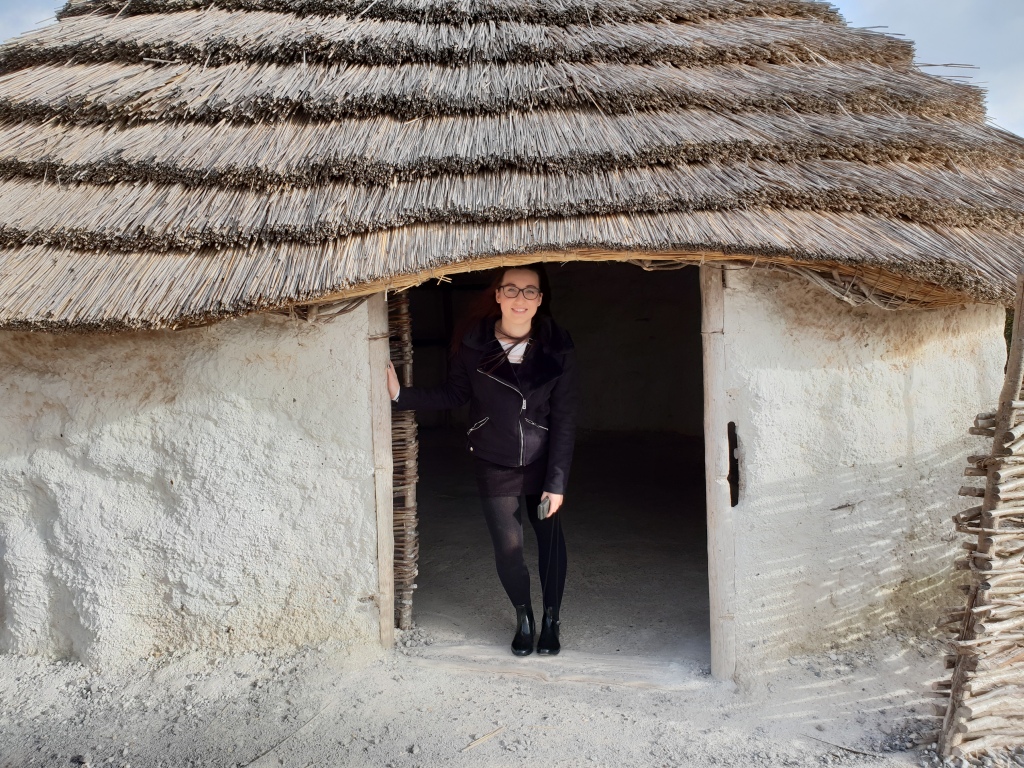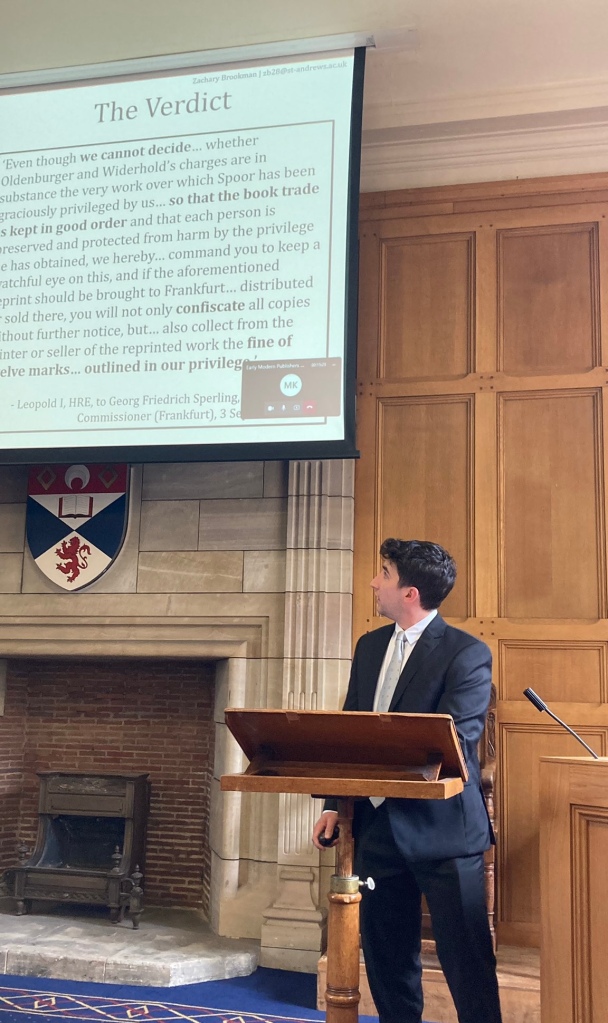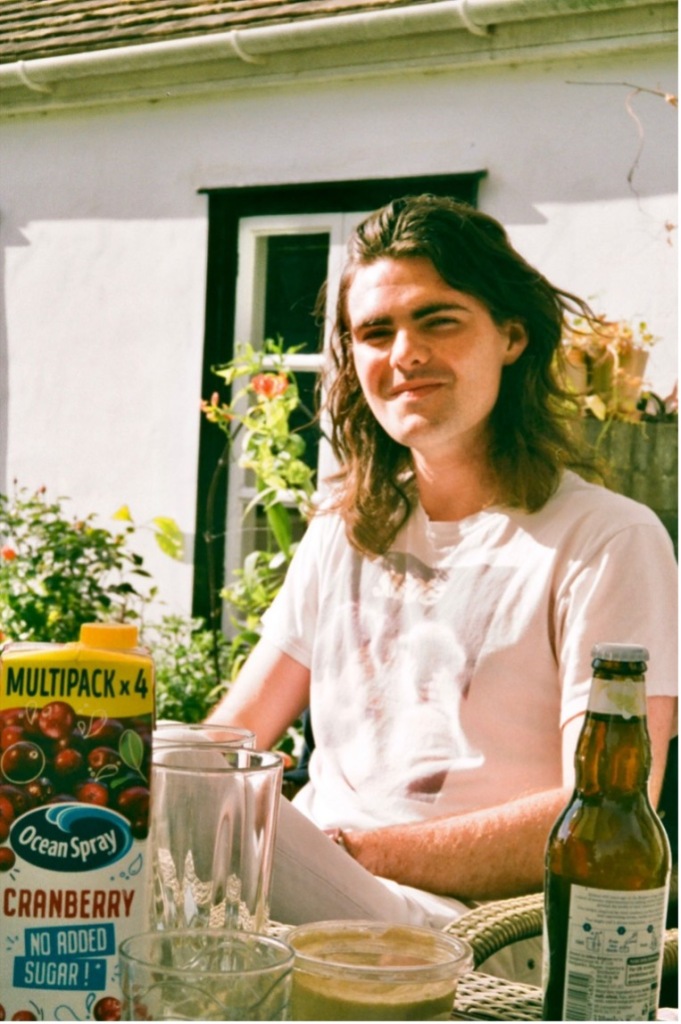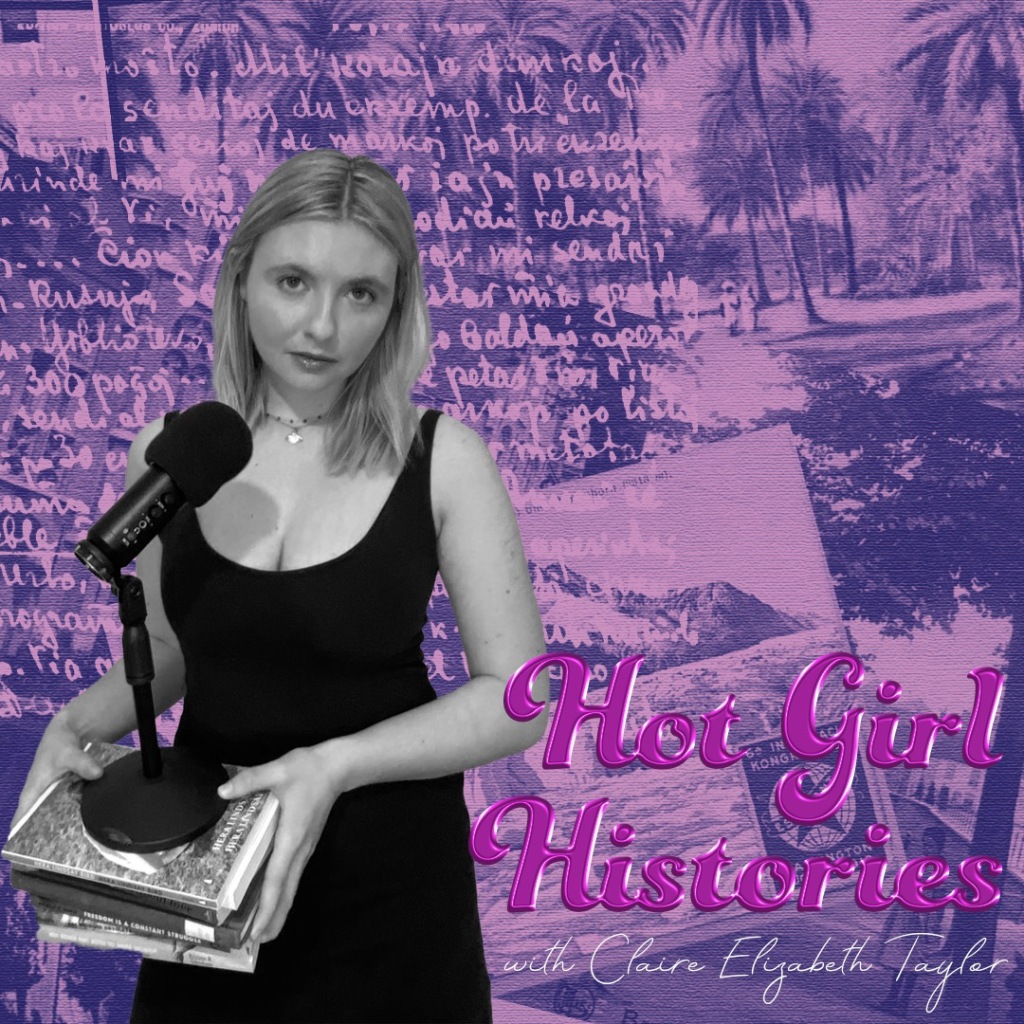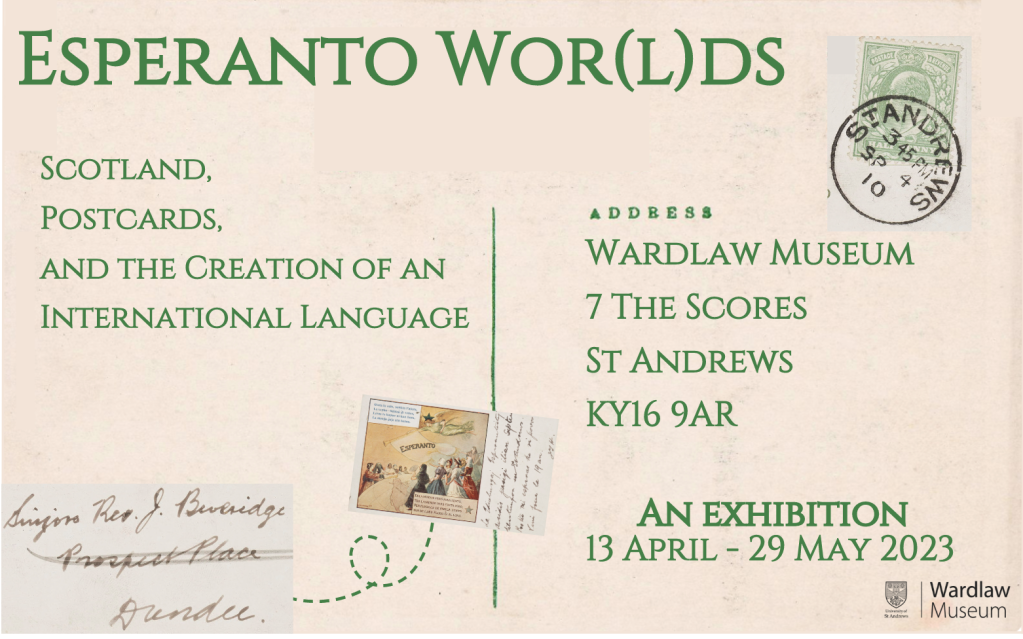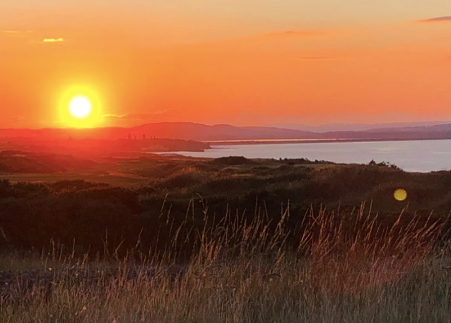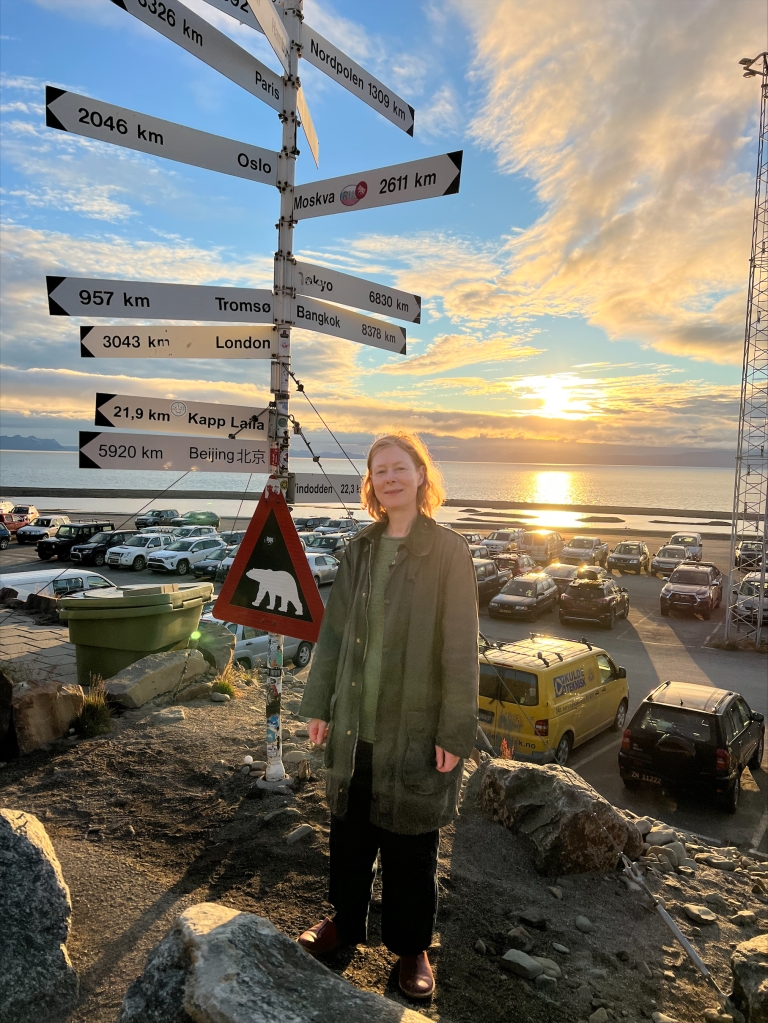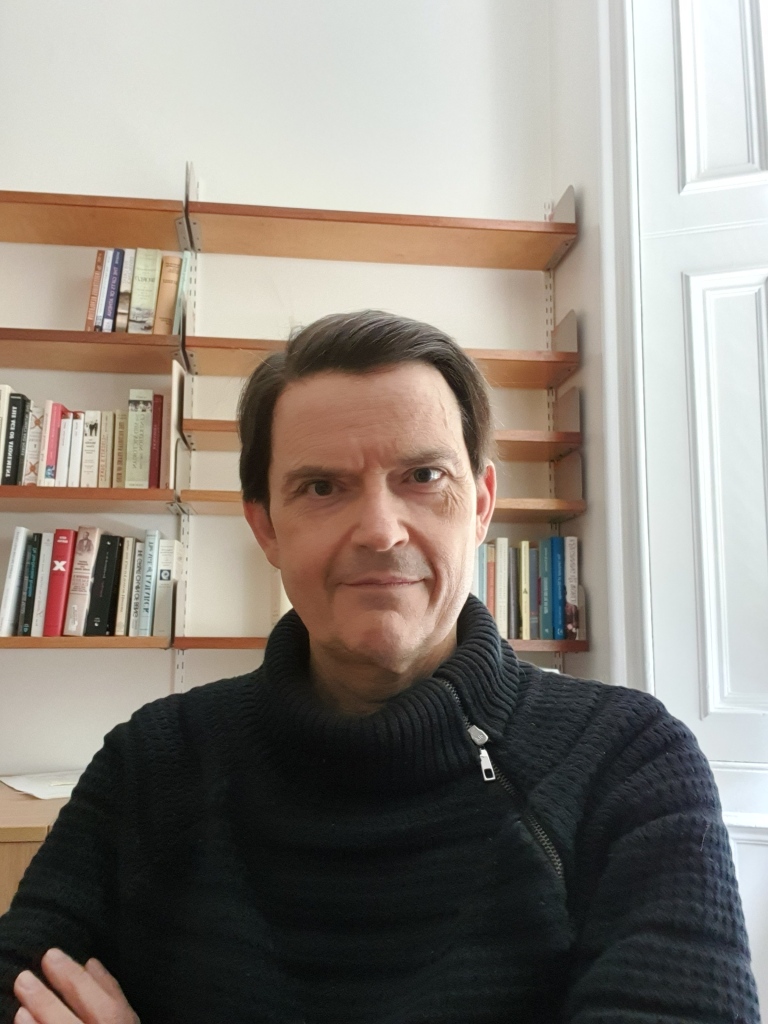Spotlight On The St Andrews Early Modern Workshop
February 28, 2024 Leave a comment
Blog is written by Baz Bowdler and Zack Brookman, co-conveners of The St Andrews Early Modern Workshop, a venue for postgraduate students to share their research on the early modern world. The Workshop meets on Mondays throughout the semester.
The St Andrews Early Modern Workshop (SAEMW) is a new forum for postgraduate students to meet up and hear about each other’s work in a relaxed and sociable environment. We invite postgraduate students at all levels, from any university and from any discipline who are working on any aspect of the early modern world, which we broadly define as 1400 to 1800. Our aim is to provide a forum for postgraduate students to gain experience in presenting on their work and to socialise with one another in a supportive and informal setting.
Our workshop was launched in Autumn 2023 by Baz Bowdler and Zack Brookman, two first-year PhDs in the School of History who were keen to get other early modernists at similar stages in their academic careers talking to each other in the same room. Throughout our first semester in Autumn 2023, we welcomed thirteen different postgraduate presenters from nine universities across the globe. We are currently in the middle of our second semester, over the course of which we are looking forward to welcoming another fourteen speakers. The workshop has so far covered an extraordinary range of subjects: from slave-soldiers in the fifteenth-century Ottoman Empire to Dublin press coverage of the French Revolution, from the role and depiction of women in the early Mughal court to the printing of academic dissertations in seventeenth-century Finland.
We meet fortnightly on a Monday evening in the Old Seminar Room of St John’s House on South Street. We typically hear from two speakers, each of whom speak for 15-20 minutes about something they are currently working on. Over some refreshments there’s an opportunity for speakers to get feedback on their work and attendees to make new connections and discuss their research and postgraduate life more broadly. We usually follow each session up with a trip to the pub, to continue the conversations we’ve started at the Workshop. The hybrid format of the workshop allows students from across the world to tune in and present on their work.
We are currently in the midst of our second semester of sessions but are already looking forward to our third edition of the workshop, which will run in Autumn 2024. The best way to receive news about our upcoming sessions and future call for papers is by signing up to our mailing list by emailing Baz and Zack at standrewsearlymodernworkshop@gmail.com or by following us on Twitter/X @SAEarlyModern.

